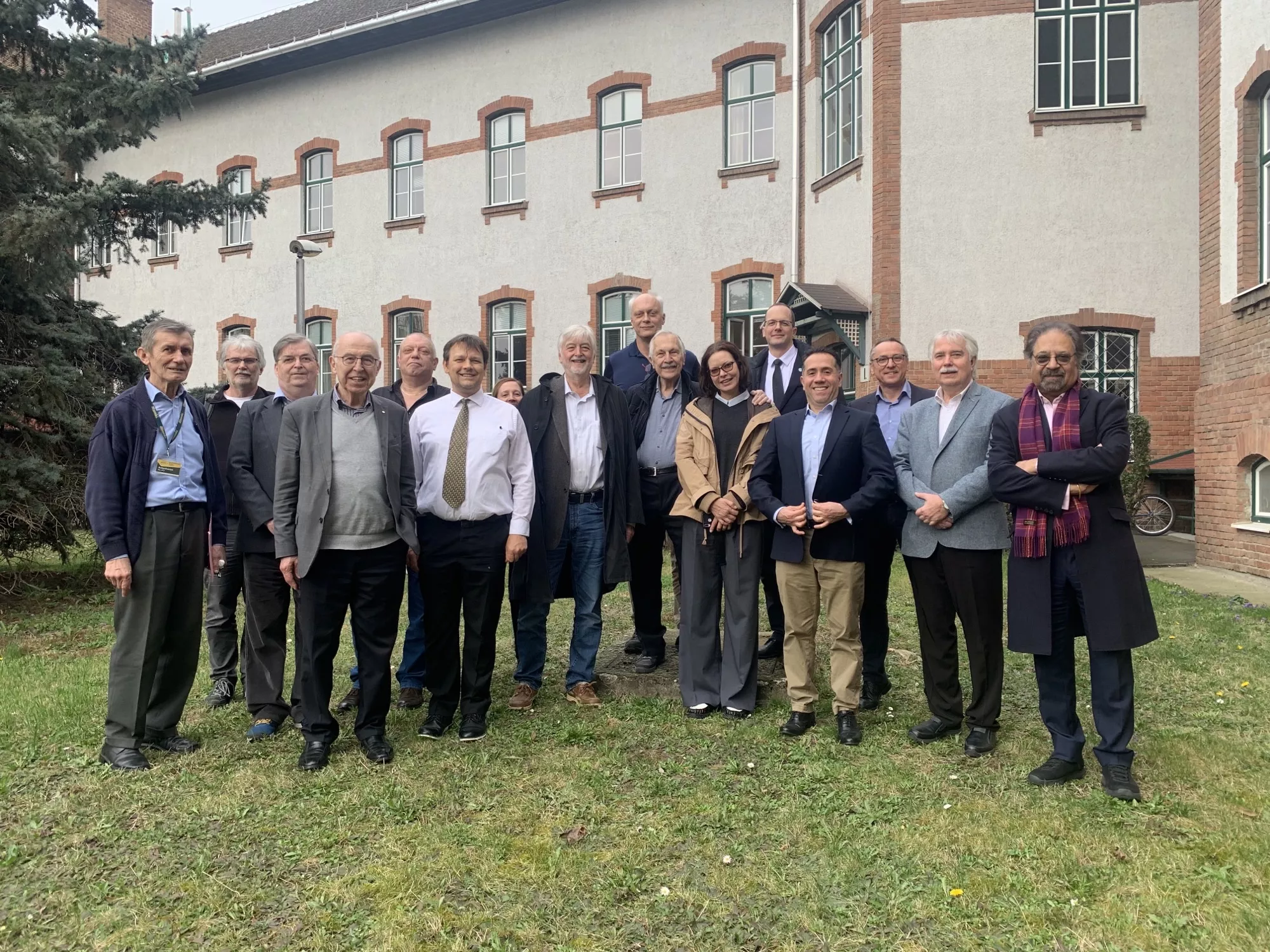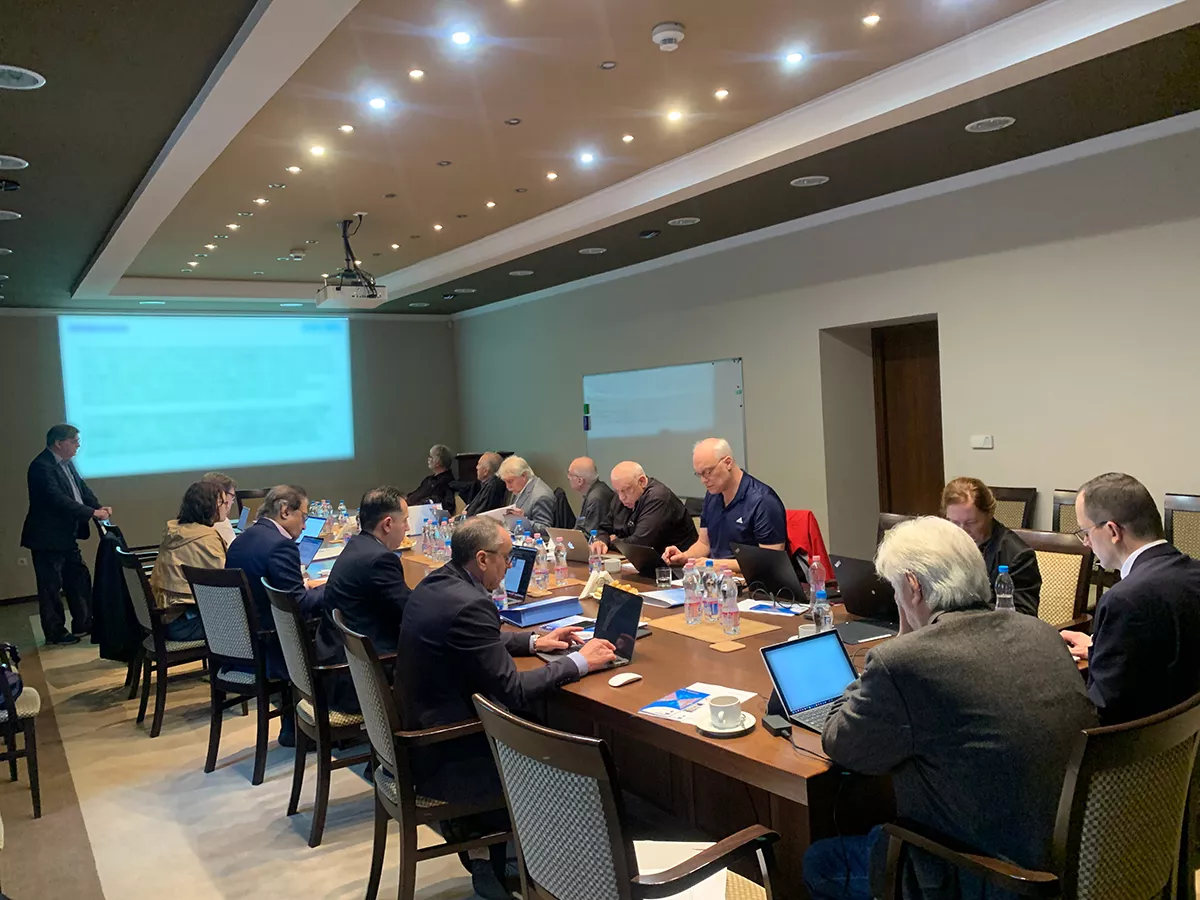On 29 February 2024, the Assessment Committee comprising internationally highly recognised researchers in line with the institute's profile, reviewed the scientific activities of the HUN-REN Institute for Nuclear Research (HUN-REN ATOMKI), with the institute's Director and research group leaders participating. During personal meetings, the committee familiarised themselves with the research activities and local research infrastructures, and met with PhD students. At the end of the visit, they shared their initial impressions and key recommendations.

The members of the Assessment Committee evaluating HUN-REN ATOMKI are:
Prof. Alexander J.B. Zehnder, Visiting Professor at Nanyang Technological University (NTU), Singapore, Professor Emeritus at ETH Zurich, Switzerland, Chairman of the HUN-REN Advisory Board
Dr. István Szabó, PhD, Deputy CEO for Strategy and Innovation at HUN-REN Headquarters, former Vice President for Science and International Affairs at the Hungarian National Research, Development and Innovation Office, founder of the Innovation Section at the Hungarian Economic Association
Prof. Peter Török, DPhil, Professor at Nanyang Technological University (NTU), Director of Imaging at the Singapore Centre for Environmental Life Sciences Engineering (SCELSE), Director of the NTU Optical Bio-Imaging Centre (NOBIC), Interim Director of the Institute for Digital Molecular Analytics and Science (IDMxS) (Singapore)
Dr. Sacit Cetiner, PhD, Senior Research Scientist at the Idaho National Laboratory (INL), Scientific Director of the joint INL/MIT Center for Reactor Instrumentation and Sensor Physics (CRISP), and member of the American Association for the Advancement of Science (USA)
Prof. Szabolcs Márka, PhD, Walter O. LeCroy, Jr. Professor of Physics at the Columbia University in the City of New York, a co-discoverer of cosmic gravitational waves
Prof. Carlo Rizzuto, Full Professor at the Faculty of Engineering of the University of Genova, and Chair of the General Assembly of the Central European Research Infrastructure Consortium (CERIC-ERIC) (Italy)
Prof. Sir Jim Tejinder Singh Virdee, FRS, Professor of physics at Imperial College London, co-founder of the Compact Muon Solenoid Collaboration (CMS) at CERN’s Large Hadron Collider (UK)
Prof. Dr. Ilan Goldfarb, Full Professor and former Chair of the Department of Materials Science and Engineering, and former Director of the Wolfson Applied Materials Research Centre at Tel Aviv University (Israel)
Prof. Mohsen N. Harakeh, PhD, member of the Academia Europaea, Emeritus Professor of the University of Groningen, former Chair of the Physics and Engineering Section of the Academia Europaea and of the Nuclear Physics European Collaboration Committee (NuPECC), and Officer in the Order of Orange-Nassau (Netherlands)
Prof. Marek Lewitowicz, PhD, Chairman of the Nuclear Physics European Collaboration Committee (NuPECC), and Research Director of the Centre National de la Recherche Scientifique in the French national laboratory GANIL in Caen (France)
Hans-Arno Synal, PhD, Honorary Professor at ETH Zurich, former Head of the ETH Laboratory of Ion Beam Physics (LIP), and co-founder and scientific advisor at Ionplus AG (Switzerland)
Dr. Jana Kolar, Executive Director of the Central European Research Infrastructure Consortium (CERIC-ERIC), European Innovation Council (EIC) Ambassador, former Chair of the European Strategy Forum on Research Infrastructures (ESFRI) (Slovenia)
The comprehensive assessment of HUN-REN's 49 research institutes was launched in January 2024, at the initiative of President Balázs Gulyás. The aim is to provide an unbiased and candid assessment of the standing of HUN-REN's research institutes in the global competition and identify potential breakthrough points. Building on the results of the evaluation, and by incorporating international best practices and examples, a new research strategy that supports the defined objectives will be developed in collaboration with the research institutions.
